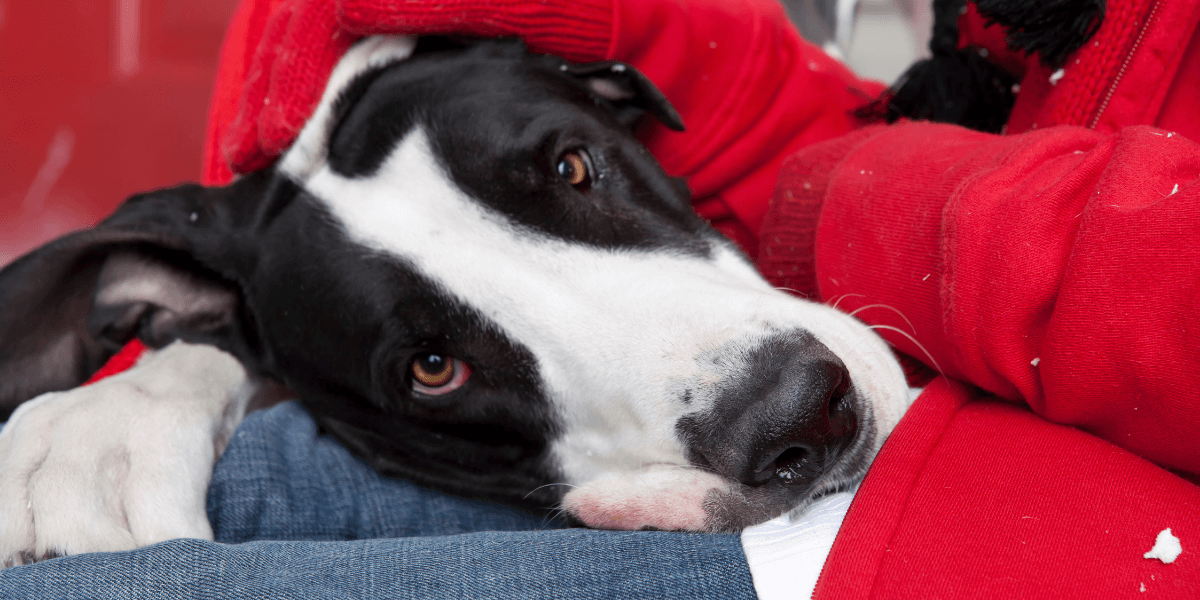Introduction
Welcoming a Great Dane puppy into your home is a rewarding experience
-
Known for their gentle giant demeanor
-
Raising a healthy Great Dane puppy comes with its own set of challenges
-
This guide will explore the top 10 tips to ensure your Great Dane puppy grows up happy and healthy.
1. Nutrition: The Foundation of Health
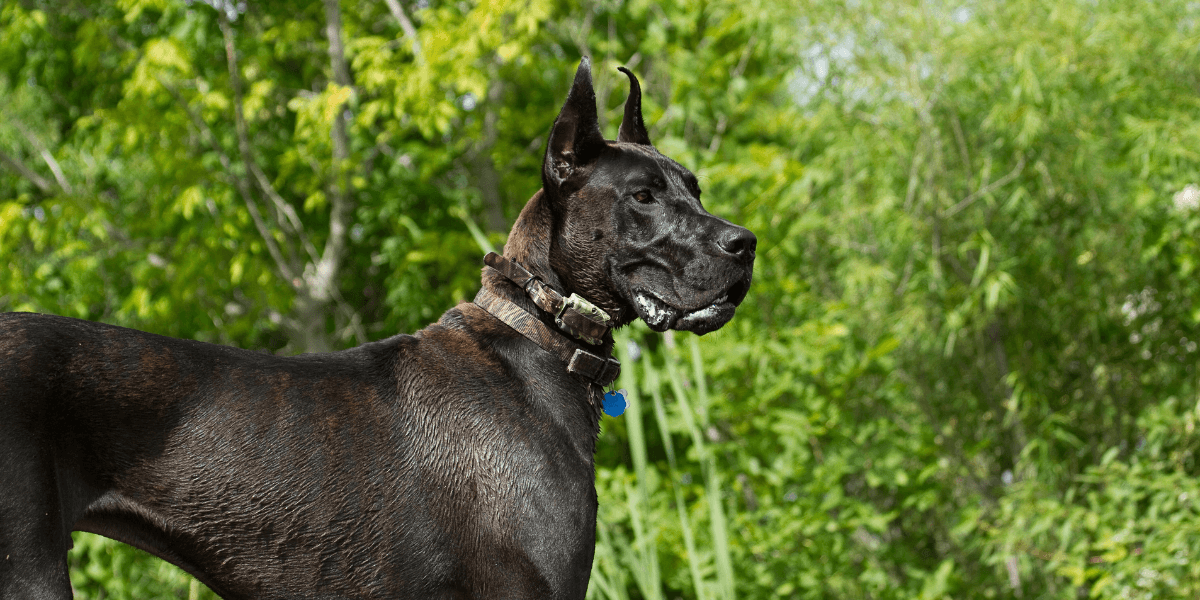
Proper nutrition is critical to prevent growth-related issues such as hip dysplasia.
-
Choose high-quality puppy food: Look for a large-breed puppy with nutritional requirements
-
Avoid overfeeding: Overfeeding can lead to obesity and stress on developing joints
-
Supplements: Consult your vet before adding any supplements to your puppy’s diet
-
Fresh Water: Ensure your puppy has access to fresh water at all times to stay hydrated
-
Feeding Schedule: Establish a consistent feeding schedule
2. Regular Vet Check-Ups
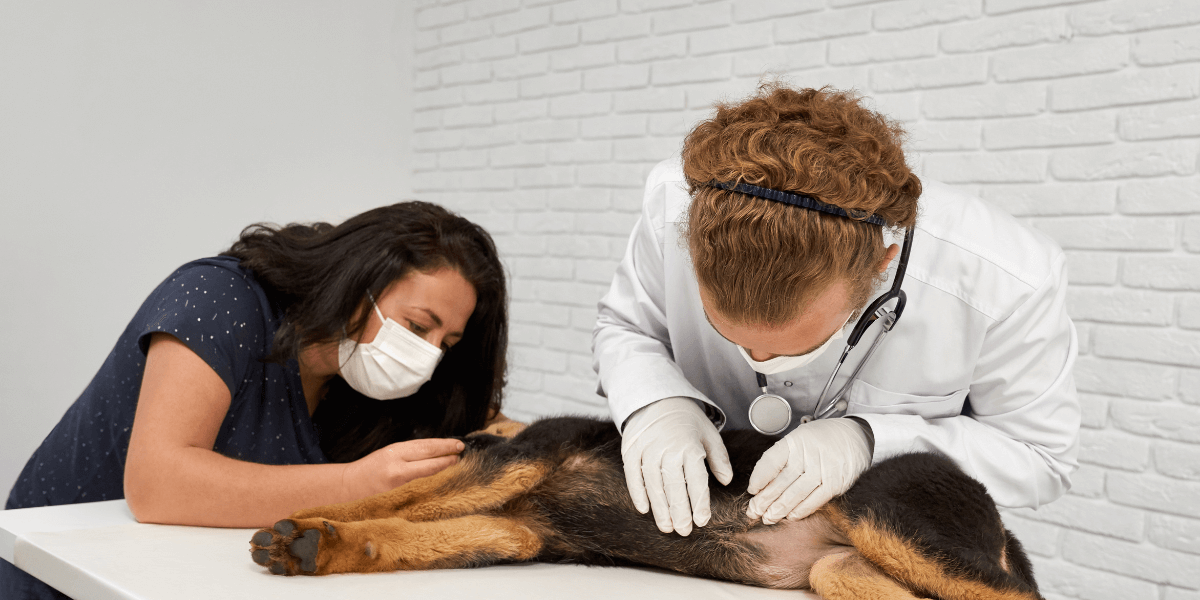
Regular veterinary visits are essential to monitor your puppy’s health.
-
Vaccinations: Keep up with the recommended vaccination schedule
-
Parasite Prevention: Regularly treat your puppy for fleas, ticks, and worms
-
Growth Monitoring: Your vet can help monitor your puppy’s growth
-
Health Screenings: Early detection of potential health issues
-
Dental Checkups: Regular dental checkups can prevent oral health issues
3. Socialization: Building Confidence
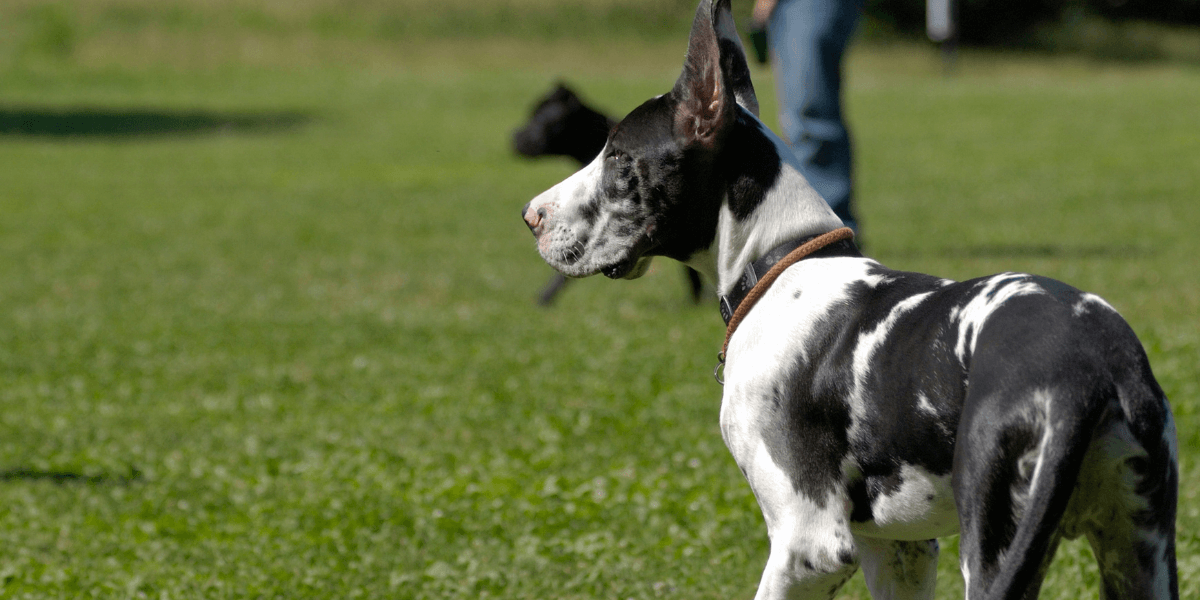
Socializing your Great Dane puppy is crucial to raising a well-behaved and confident adult dog.
-
Puppy Classes: Enroll in puppy socialization classes to expose your dog to other puppies
-
Daily Walks: Introduce your puppy to various environments, sounds, and smells
-
Positive Reinforcement: Reward good behavior with treats and praise
-
Meeting Other Pets: Gradually introduce your puppy to other pets to foster good relationships
-
New People: Encourage interactions with different people to build your puppy’s confidence
4. Training: Setting Boundaries
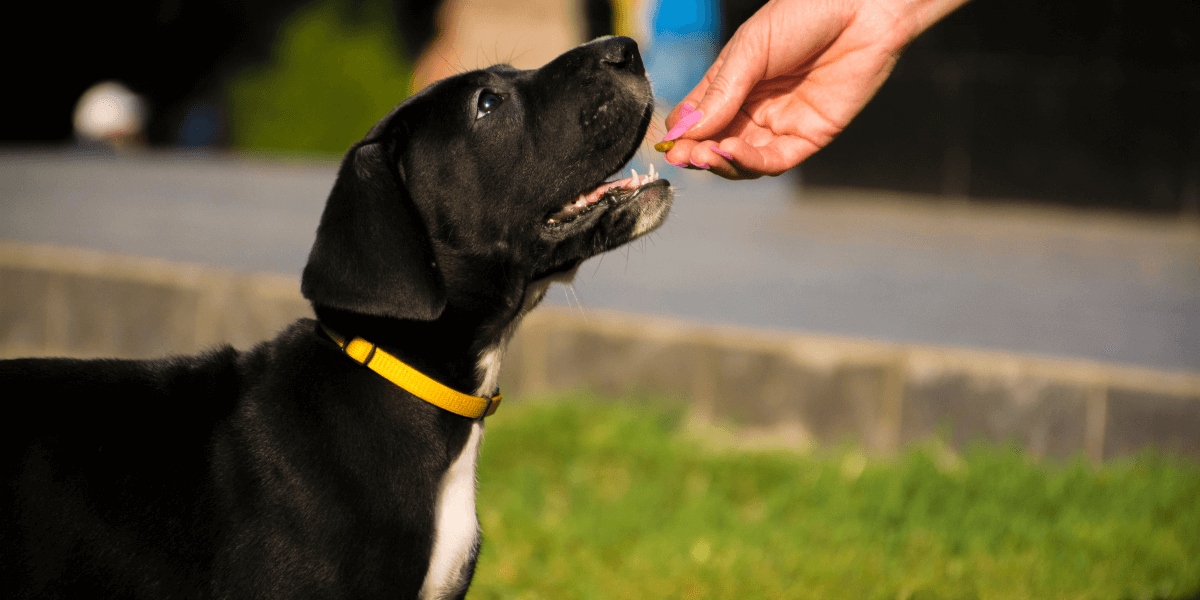
Training your Great Dane puppy from an early age is essential to manage their size and energy levels.
-
Basic Commands: Teach commands like sit, stay, come, and down
-
House Training: Establish a consistent routine for bathroom breaks
-
Leash Training: Due to their size, leash training is particularly important to prevent pulling
-
Consistency: Consistent training methods help reinforce good behavior
-
Patience: Training requires patience; ensure you maintain a positive attitude
5. Exercise: Keeping Your Dane Fit
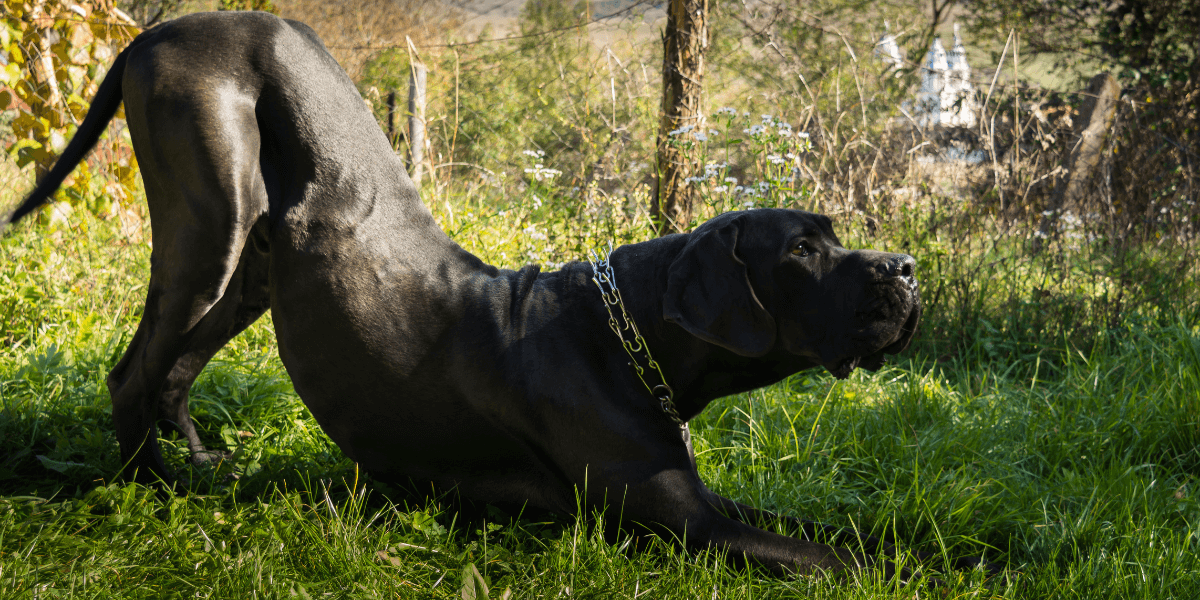
Great Danes are prone to joint issues, so it’s important to balance exercise with rest.
-
Moderate Exercise: Provide daily walks and playtime without over-exerting your puppy
-
Avoid High-Impact Activities: Prevent activities that put excessive strain on developing joints
-
Interactive Play: Engage your puppy with toys and activities that stimulate their mind and body
-
Rest Periods: Ensure your puppy has ample time to rest and recover after physical activity
- Variety: Offer a variety of exercises to keep your puppy physically and mentally stimulated
Want to learn how exercise can help prevent hip dysplasia in Great Danes? Read more about it here.
6. Grooming: Maintaining a Healthy Coat
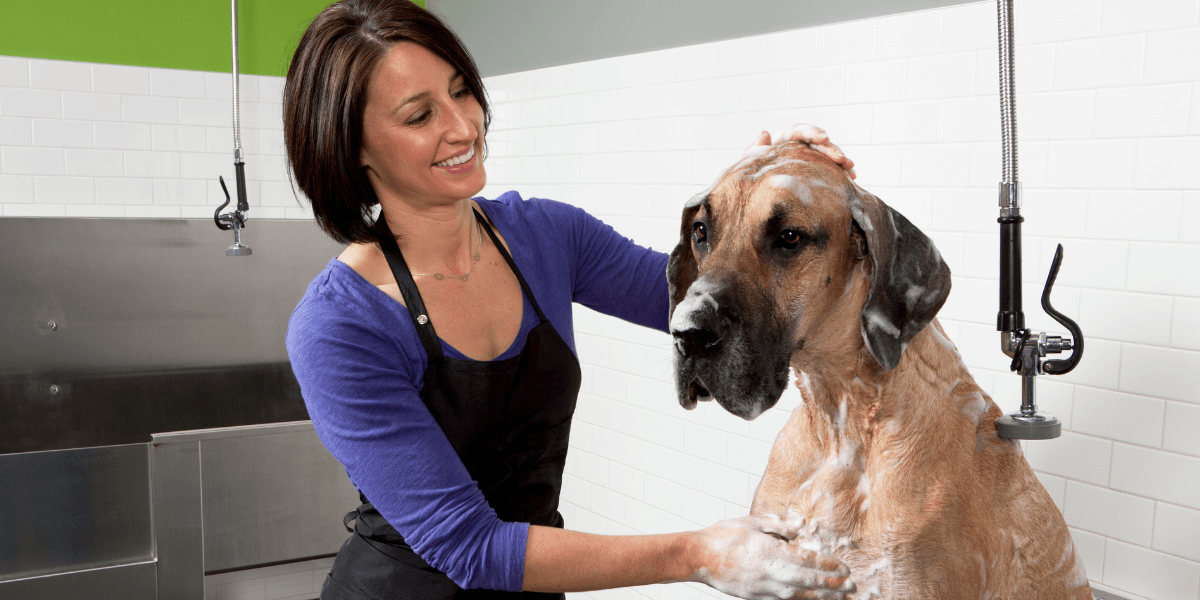
Keep your Great Dane’s coat shiny and skin healthy with regular grooming sessions.
-
Brushing: Brush your Great Dane weekly to remove loose hair and distribute natural oils
-
Bathing: Bathe your puppy as needed using a gentle dog shampoo to keep their coat clean
-
Nail Trimming: Regularly trim your puppy’s nails to prevent overgrowth and discomfort
-
Ear Cleaning: Clean your puppy’s ears regularly to prevent infections
-
Check for Parasites: Regularly check your puppy for fleas and ticks
7. Monitoring Growth and Health
Keeping an eye on your Great Dane’s growth and health is crucial to ensure they develop properly.
-
Weight and Height Tracking: Regularly measure and weigh your puppy
-
Joint Health: Watch for signs of joint discomfort or limping
-
Dental Health: Brush your puppy’s teeth regularly
-
Body Condition: Monitor your puppy’s body condition
-
Behavioral Changes: Keep an eye out for any sudden changes in behavior
Support your Great Dane's growth and health with the Guide to Great Danes Nutrition: Best Foods & Supplements.
8. Mental Stimulation: Keeping Their Minds Sharp
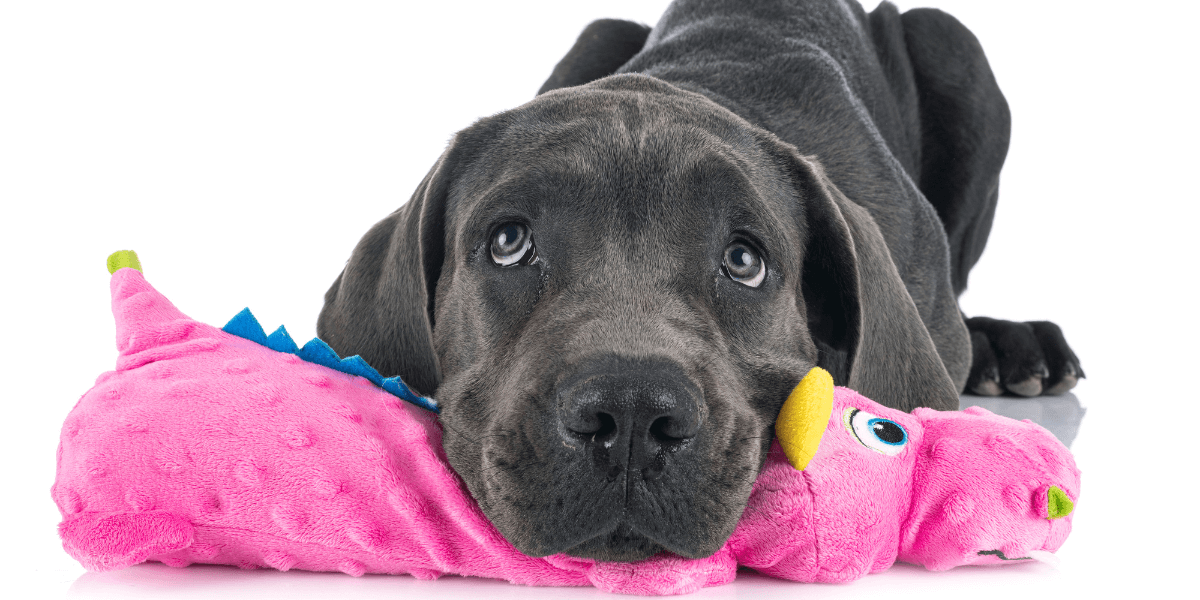
Great Danes are intelligent dogs that require mental stimulation to stay happy and healthy.
-
Interactive Toys: Provide toys that challenge your puppy and keep them engaged
-
Training Games: Use training sessions as a way to mentally stimulate your puppy
-
Puzzle Feeders: Incorporate puzzle feeders during meal times to encourage problem-solving
-
Variety: Offer a variety of activities to keep your puppy interested
-
Social Interaction: Regularly engage with your puppy to promote social development
9. Proper Rest: Ensuring Adequate Sleep

Proper rest is essential for your Great Dane puppy’s development and overall well-being.
-
Comfortable Bed: Provide a supportive bed that’s enough for your puppy
-
Quiet Space: Create a quiet, comfortable area for your puppy to sleep
-
Regular Sleep Schedule: Establish a consistent sleep routine
-
Nap Times: Ensure your puppy has plenty of opportunities for naps throughout the day
-
Monitor Sleep Patterns: Keep track of your puppy’s sleep patterns
10. Bonding Time: Building a Strong Relationship
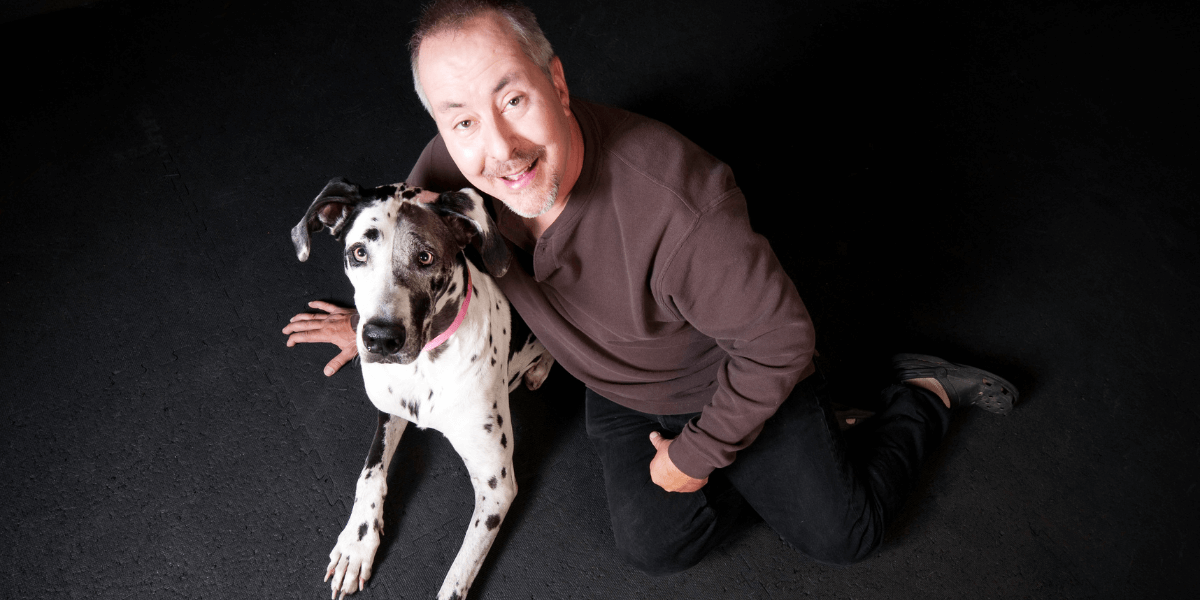
Building a strong bond with your Great Dane puppy will ensure a lifelong, loving relationship.
- Quality Time: Spend quality time playing, training, and relaxing with your puppy
-
Positive Reinforcement: Use positive reinforcement techniques to build trust and affection
-
Consistency: Be consistent with your interactions and routines
-
Affection: Show your puppy love and affection to create a deep emotional connection
-
Communicate: Use consistent commands and cues to improve communication
FAQs
1. What are the best foods for a Great Dane puppy?
- Choose high-quality, large-breed puppy food for balanced growth
2. How often should I exercise my Great Dane puppy?
- Moderate play and short walks daily to avoid overexertion
3. How do I socialize my Great Dane puppy?
- Expose them to various people, places, and pets early on
4. When should I start training my Great Dane puppy?
- Begin basic training and socialization from 8 weeks old
5. What are common health issues in Great Dane puppies?
- Watch for hip dysplasia, bloat, and growth-related problems
Conclusion
-
Raising a healthy Great Dane puppy requires dedication, knowledge, and love
-
You can ensure your gentle giant grows into a happy, healthy, and well-behaved adult dog
-
Share your journey with fellow Great Dane enthusiasts and leave your comments below
-
Don’t forget to share this post with friends who might benefit from these tips!
References
- For more bonding tips, visit Cesar’s Way on building a bond
-
For more exercise tips, visit the PetMD exercise guide
- For additional health monitoring tips, check out PetMD’s puppy care guide
- For choosing the right orthopedic bed, you can check out Choosing the Best Orthopedic Bed
- For hip and joint pain guide, you can visit A Guide to Preventing Joint Problems in Dogs


